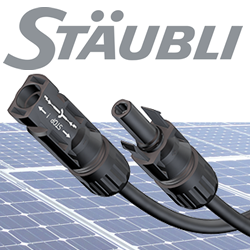Chinese Antidumping Duties to Drive up Solar Polysilicon Devices—But Not Too Much
While the duties will send prices up, other factors will serve to limit the increase.
El Segundo, Calif. (May 31, 2013)—China's pending move to slap antidumping tariffs on imported solar polysilicon from key countries will generate a surge in pricing for this key raw material in June and July—but the magnitude of the increase will be limited market factors.
The likely imposition of the import duties will cause global solar polysilicon pricing to rise to $19.50 per kilogram in June and July, up from $16.50 in May, according to IHS Polysilicon Price Tracker from information and analytics provider IHS (NYSE: IHS). This represents a major turnaround for a polysilicon market that has seen average pricing decline for seven of the last 10 months, as presented in the attached figure.
However, the increase will amount to only 18 percent, falling short of the 30 percent indicator that would represent a major market correction. Prices also would remain below the key $20-per-kilogram mark.
"IHS believes China is likely to impose antidumping tariffs with rates ranging from 30 to 50 percent on polysilicon imported from the European Union, the United States and South Korea," said Glenn Gu, senior analyst, photovoltaics, at IHS. "However, the impact of the duties will be mitigated by factors including long-term agreements (LTA) that stabilize pricing as well as efforts by buyers and sellers to bypass the tariffs."
Polysilicon pricing factors
While the duties will send prices up, other factors will serve to limit the increase.
First, to produce high-quality cells, a superior grade of polysilicon is required. Such high-end polysilicon is supplied from the European Union, the United States and South Korea. However, Chinese cell manufacturers can reduce the impact of rising prices for imports by blending high-quality silicon with lower-end material to reduce the average cost.
Next, LTAs between Chinese buyers and international suppliers will protect supply agreements. This will lock in lower pricing, at least for a period of time.
Furthermore, the duties potentially can be evaded by using wafer tolling outside of China.
Meanwhile, it will be difficult for Chinese midstream players to accept polysilicon prices above $20.5 per kilogram from the spot market in China with continuous cost pressure from downstream suppliers.
Finally, the global manufacturing overcapacity of solar-grade polysilicon will continue and not allow sustainable local price spikes even with protected local production.
About IHS (www.ihs.com)
IHS (NYSE: IHS) is the leading source of information, insight and analytics in critical areas that shape today's business landscape. Businesses and governments in more than 165 countries around the globe rely on the comprehensive content, expert independent analysis and flexible delivery methods of IHS to make high-impact decisions and develop strategies with speed and confidence. IHS has been in business since 1959 and became a publicly traded company on the New York Stock Exchange in 2005. Headquartered in Englewood, Colorado, USA, IHS is committed to sustainable, profitable growth and employs 6,700 people in 31 countries around the world.
Featured Product

​Stäubli Electrical Connectors
​Stäubli Electrical Connectors are used on more than 300 GW, over 50% of the PV capacity worldwide. The MC4 family of UL and TUV listed products include connectors, in-line fuses, branch connectors, cable assembly and more.
